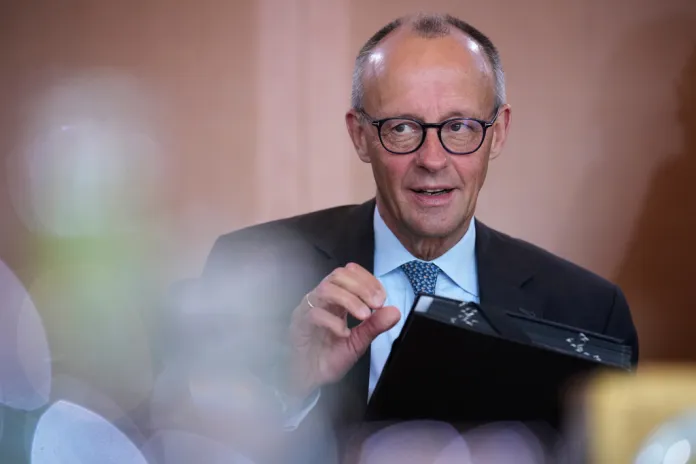German Chancellor Friedrich Merz is warning Syrian refugees to return to their country or else face deportation.
The center-right leader said that following the end of the nation’s civil war, the approximately 1,000,000 Syrian refugees will be expected to repatriate.
“There are now no longer any grounds for asylum in Germany, and therefore we can also begin with repatriations,” the chancellor said on Monday.

“I will say it again: The civil war in Syria is over,” Merz emphasized. “There are now no longer any grounds for asylum in Germany.”
If Syrian nationals who fled the violence of their country’s civil war do not voluntarily leave, the chancellor has left the door open for compulsory deportations, claiming that Syria cannot be restored without the return of its diaspora.
“Without these people, rebuilding will not be possible,” Merz explained. “Those in Germany who then refuse to return to the country can, of course, also be deported in the near future.”
Merz’s announcement directly conflicts with the views expressed by Foreign Minister Johann Wadephul, who said this week that Syrian refugees cannot be repatriated en masse because “it is almost impossible for people to live a dignified life” in Syria.
Merz further announced that he has invited Syrian President Ahmed al Sharaa to visit Germany and discuss a coordinated effort for swift repatriation.
The chancellor said he is looking forward to discussing with the terrorist-turned-statesman “how we can solve this together.”
He added that Germany will “continue to deport criminals to Syria” and “will now implement this in a very concrete manner.”
It is a drastic escalation in policy for the center-right Christian Democratic Union, which has been eclipsed by the more right-wing Alternative for Germany in public opinion polls.
Alternative for Germany is outspokenly opposed to migration, particularly from Islamic countries, due to the perceived inability of such foreign nationals to integrate into German society.

Mass immigration remains the single most pressing issue among German voters, according to opinion polls. This anxiety has fueled the surge of the AfD and forced the CDU to pivot rightward to stop hemorrhaging support.
Despite winning this year’s parliamentary election with 28.5% compared to second-place AfD’s 20.8%, Merz warned that the right-wing party’s rise is a “real warning bell, a real alarm bell for the political parties of the center in Germany to come up with shared solutions.”
AHMED AL SHARAA TO MEET WITH TRUMP AS FIRST SYRIAN PRESIDENT TO VISIT WHITE HOUSE
Current polls show the AfD with the highest levels of support in Germany at 26%, compared to the CDU’s 25% and the Social Democratic Party in third with 14%.
Last month, AfD leader Alice Weidel celebrated her party breaking 40% support in the state of Saxony-Anhalt, which is set to hold an election next year that could give the AfD its first-ever state premier. The CDU trails in Saxony-Anhalt in a distant second place at just 26%.
